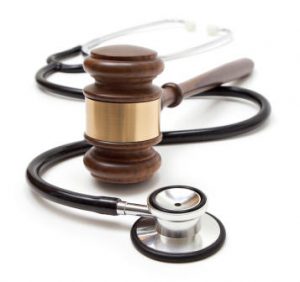
Corona Virus
…and your legal cases
As of March 16, 2020, it is clear America is in the fight of its life against an invisible foe known as Covid-19 aka the coronavirus. This foreign invader grows faster than compound interest. It is a true monster with exponential superpowers. In the course of 55 days (the number of days since the first American was confirmed to have this virus to now), this virus caused one of the strongest bull markets in stock market history to lose three years of gains and send a thriving economy into a recession.
With no cure or vaccine to fight it, self-imposed quarantining is the only way to slow its spread. Scientists do not even talk in terms of “stopping it”, their best hope is to merely slow it down while an under prepared healthcare system struggles to catch up. This is what has been described as flattening the curve. While older citizens with chronic health problems are believed to be the most vulnerable, young healthy people can spread the virus and that makes this a battle that everyone must join. It requires nearly complete cooperation.
The businesses most immediately impacted by this pandemic are those that rely on crowds to gather in their restaurants, gyms, and theaters, or at their stadiums, convention halls, or theme parks. If not now, sometime soon, even businesses who don’t depend upon crowds will feel the pressure of this pandemic as they depend on other businesses or those businesses employees to sustain their cash flow.
Some businesses will continue to operate as their employees work from home or work in isolation zones within the business itself. In the end, everyone will be negatively impacted. “What should we do”, you ask? There are certainly some very fundamental things all Americans must do now.
1. Get informed and stay informed. Listen to credible sources of news and information. Avoid unreliable sources. Currently, the Centers for Disease Control (CDC) is deemed a reliable source.
2. Honor the Federal, State, and local governments mandates on travel restrictions, business closures, and self-quarantine.
3. Be prepared, if necessary, to reinvent yourself. It may turn out that unemployed workers, such as waitresses and bar tenders or even out-of-work lawyers (for example), will need to be trained to work in special coronavirus wards to help fight this pandemic.
4. Prioritize your spending, if you have limited resources.
5. Be part of the solution by thinking of ways you can help keep businesses moving while protecting patrons. (I have a vision of a movie theater full of movie goers in hazmat suits).
6. Help those who need help. Give of yourself.
BUT WHAT ABOUT MY CASE?
 Yes, indeed, you have legal issues and you may be wondering what all this means for your particular case. Most law offices are prepared with a continuity plan for emergencies like this. Lawyers can do much of what they do from home. They can continue to work on your case, generally, without the need to meet with you in person or to leave home, as long as they have a computer and a link to the internet.
Yes, indeed, you have legal issues and you may be wondering what all this means for your particular case. Most law offices are prepared with a continuity plan for emergencies like this. Lawyers can do much of what they do from home. They can continue to work on your case, generally, without the need to meet with you in person or to leave home, as long as they have a computer and a link to the internet.
For cases that are transactional in nature, such as preparing a Will or a Trust or a contract or forming a new business, lawyers are will suited to accomplish this work from their couch or home office. If your case is a matter pending before a court of law, then some work can be done outside of court by your lawyer working from home, but where hearings or trial are concerned, courts around the country are continuing trials and postponing everything on their calendars for the foreseeable future. This may be good, if you are a reluctant participant desiring to postpone the inevitable, but it may be bad, if you want your day in court so justice can prevail.
Some legal disputes avoid court all together where the parties agree to submit their dispute to an arbitrator or arbitration panel. These arrangements are typically worked out in advance by inserting these agreements into a contract. However, sometimes litigants make the decision to have an arbitrator decide their case after the dispute arises. This might be the case where they desire to have the matter decided quickly and avoid the long delays often forced upon traditional litigants in the trial courts.
The pandemic is changing the dynamics of everyday life in so many ways it is difficult to anticipate everything that will impact us. However, it is reasonable to expect many litigants who desire a quick resolution to their dispute to agree to submit their case to an arbitrator and therefore the demand for arbitration services is very likely to explode over the next few weeks and months.
Where litigants are cash starved, they may actually benefit from these delays as it will permit them to modulate their cash flow with the circumstances impacting the court’s calendar. Being cash starved may also compel those who are desperate for cash to settle for less than they might otherwise accept under normal circumstances.
All litigants must take care to at least file their claims timely in order to avoid statutes of limitation and for that reason, even where cash or the lack of it is a concern, talking this point through with an attorney could enable them to anchor their claim now while delaying the progression of the procedural process. Some things just can’t wait.
If you are not impacted by cash flow and you have the means to bring or defend a case, you should know that most every lawyer in practice today will be able to assist you, provided they can work from home and have access to the internet. Hopefully, the coronavirus will not alter that in the future.









